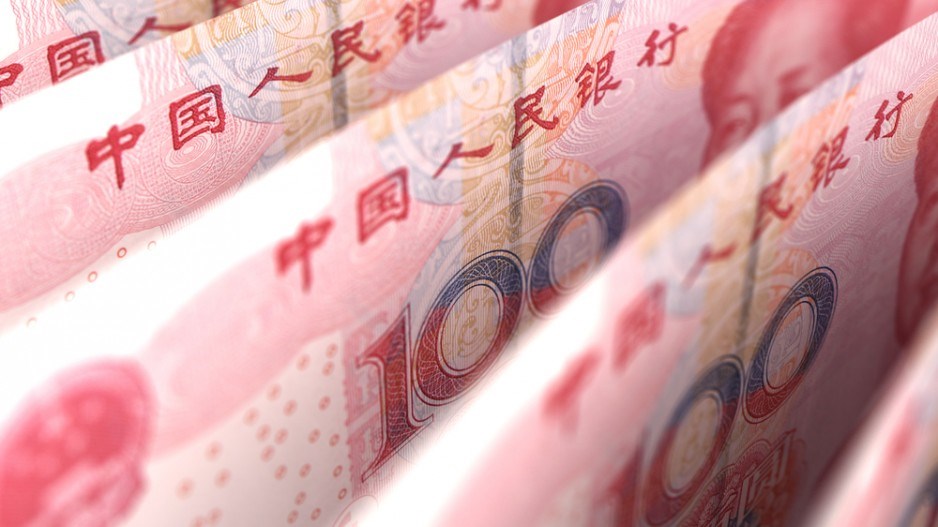An agreement to establish a Chinese currency-trading hub is expected to spur Canadian exports to China and will give Canadian investors earlier access into emerging Chinese capital markets.
The deal, signed between the Bank of Canada and the People’s Bank of China, was announced November 8 during Prime Minister Stephen Harper’s recent trade visit to China.
“There are all of these monumental changes going on in the Chinese economy,” said David Watt, chief economist for HSBC.
“This [agreement] now allows Canadian investors to be in, maybe not on the ground floor but in the early stages of this process. That means we’ll be familiar with Chinese markets and Chinese dispute mechanisms if there are disputes.”
A coalition of financial sector organizations in Canada had been pushing for the agreement in order to establish an official renminbi (RMB) currency-trading hub in Canada. An official RMB hub did not previously exist in North America.
AdvantageBC and the Toronto Financial Services Alliance have argued that the currency hub could boost trade with China by $500 million a year, in part because it would allow Canadian companies to directly exchange funds from Canadian dollars to RMB.
Currently, most exporters exchange to U.S. currency first, a process that costs more.
Beyond making renminbi transactions easier for Canadian companies, Watt said a $50 billion qualified foreign investor quota is an equally important part of the agreement.
That measure will give Canadian investors important early access to evolving Chinese stock and bond markets. Those markets are expected to continue to grow as China continues efforts to internationalize its currency.
“It deepens the relationship between Canada and China so that we don’t have that uncertainty five years from now: Chinese capital markets have opened up and we just don’t understand what’s going on there,” Watt said.
Along with the recently signed Canada-China Foreign Investment Promotion and Protection Agreement (FIPA), Watt said the currency agreement will help to solidify Canada’s trading status with China. China is currently Canada’s second largest trading partner, behind the United States.
He noted that a recent HSBC survey found that just 5% of Canadian companies trade directly in RMB, compared with 22% of global companies. But the interest is there: the survey found that 74% of Canadian companies were planning to increase trade with China over the next decade, compared with the global average of 59%.
@jenstden




